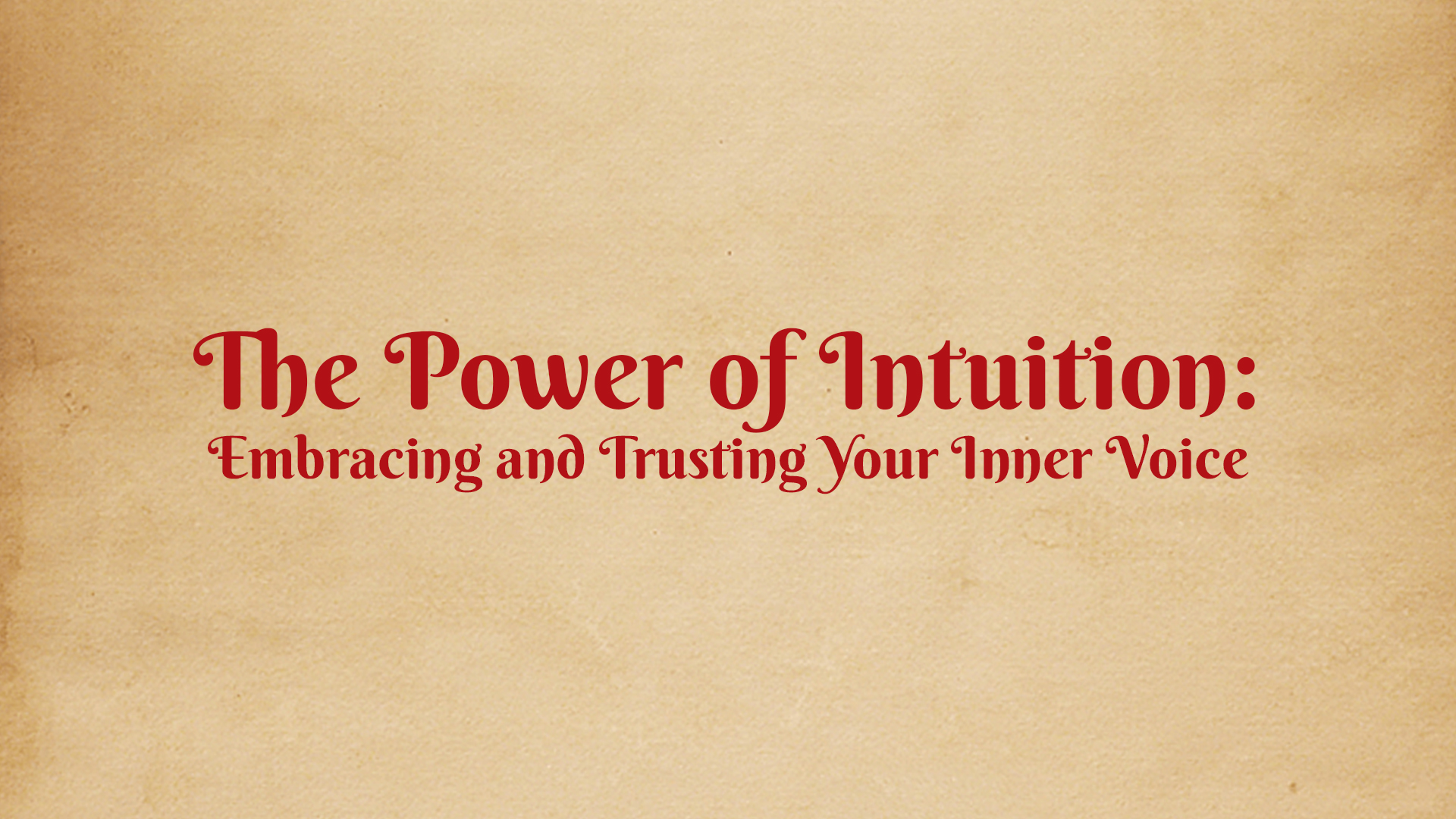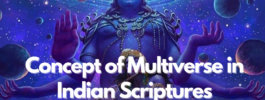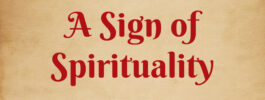The term “intuition” is one that’s frequently encountered. But what exactly is intuition, and what purpose does it serve? It represents our inner voice, the instinctive feeling that arises from deep within our soul. Whether it’s a supportive presence or a timely signal that influences our decision-making and perception, intuition guides us. This raises the question: Should we place our trust in our inner voice?
There are moments when we strongly sense that a decision may be misguided, yet impatience drives us to proceed, resulting in complications. Conversely, embracing our constructive intuitions can lead us to life-altering opportunities. This suggests that trusting our inner voice is paramount. So, how does intuition function? Let’s explore an illuminating account of the inner voice’s potency and the means to unlock its potential.
Write this as an English author
There was a kingdom named Amaravati. In that kingdom, a Mahamantri named Vidur used to live. Everything there used to be done under his guidance only. As time passed by, he was slowly getting older and for that reason, he organized a competition over there to find his successor. The competition was held in stages and in that competition, all disciplines such as archery, music, art, martial arts, and politics were examined.
Passing all the stages of the competition, only three competitors named Amartya, Badrinath and Chakrapani were left in the end out of all the selected candidates. The scores of all the three candidates were almost the same. Therefore, a decision of conducting the final examination was taken to select the deserving candidate. There was a circular room present in the middle of the kingdom. The competition was about opening the door of that circular room locked from outside the room using a unique lock brought by Vidur Ji. He told all three of them that the unique lock will only get opened by the one who is a scholar in mathematics and who has the knowledge of all other sciences. So, it got decided that the one who will open the lock using their abilities and come out first will be considered eligible to become the chief minister of the upcoming time.
Everyone in the kingdom was excited and curious about the competition. Just one day before the day of the competition, Vidur Ji made an announcement. He announced that both the lock and the room were very unique and that is why he will place the design of that room and the design of the lock in the evening at all the crossroads of the kingdom.
Vidur’s instructions echoed through the kingdom, granting the candidates an evening to dawn span to decipher the lock’s enigmatic pattern. They could seek counsel, consult scriptures, and even peruse written materials inside the room once locked.
As twilight draped the kingdom, images of the lock and its mathematical underpinnings adorned every crossroad. Amartya delved into ancient texts, meticulously documenting insights from the kingdom’s experts. Badrinath, on the other hand, scoured the library, amassing a treasury of relevant texts and puzzles, fashioning a comprehensive diary of meticulously transcribed notes from myriad sources.
But when the third candidate named Chakrapani saw the design, his behaviour changed completely. While seeing the design of the lock and understanding the rules and the regulations of the competitions, he suddenly became serious and went into a state of silence. He looked so serious that even the people surrounding him asked him whether he was okay or not. He didn’t reply to any of them and remained calm and silent. He stopped speaking and he also stopped studying texts that he had. He even ate less than the other days. He was only concentrating on the diary in which he had written all the notes of the competition. All his family members thought that he had gotten depressed due to the tension of the competition. Even his wife tried to take his tension off but he didn’t speak anything. At the time of sleeping, he silently went inside the room and locked the room.
Next morning the competition began, and all three went into the circular room. Amartya and Badrinath had bags of books, but Chakrapani only had a diary. They asked Chakrapani if the diary was enough, but he didn’t answer. After a while, he read his notes, then closed his eyes. The other two laughed, thinking he had given up. Suddenly, Chakrapani got up, lay down on the bed with his eyes closed. The others laughed again and told him not to waste his effort, but he didn’t reply, so they ignored him and started their work.
On one side, both Amartya and Badrinath tried to figure out the lock using their books and notes. On the other side, Chakrapani kept sleeping. Later, Chakrapani woke up, went to the door, and pushed it open. The door wasn’t locked from the outside, so he got out and went to Vidur Ji. Vidur Ji asked him how he got out, and Chakrapani explained everything. They went back to the room and saw Amartya and Badrinath still working on the lock. When they saw Chakrapani and Vidur Ji, they were surprised that the door was open but didn’t understand how. They thought Chakrapani might have cheated.
When Vidur Ji saw the expressions of curiosity on the face of the other two candidates, he told them the entire idea behind that competition. He explained that there are three ways to solve any situation or problem. One is by using our instinct, the second is by using our intelligence and the third is by using our intuition. He told Amartya, “As soon as you saw the design of the lock, you started using your experience to get a solution. You used your instinct and based on your instincts, you got engaged in solving the puzzling situation.” Then he told Badrinath, “As soon as you saw the design of the lock, you went up to the library and you took the help of your intelligence.”
Further, he explained to both of them that whereas one of them took the help of instinct and the other took the help of intelligence, Chakrapani resorted to his intuition as soon as he saw the design of the lock. And to make his intuition work, Chakrapani stopped speaking, cut down on his food and even calmed down his mind. He did all those things because intuition is our inner voice and we can only hear it when our body and mind stop speaking.
Instinct is connected with the body, Intelligence is connected with the mind and Intuition is connected with the soul. And the soul is connected to the divine energy known as God. So, as soon as the mind and body of Chakrapani calmed down, his inner voice told him to stand up and push the door, check whether the door was closed or not and think about the design of the lock afterwards.
Hence, it can be concluded that Chakrapani had to keep his body, senses, and mind calm to hear his intuition. Our intuition is our true eye, and it can only be heard when the body and mind are calm. Vidur Ji even gave a verse describing true intuition. Just as a mirror is of no use to the blind, texts are of no use to a person without intuition.
यस्य नास्ति स्वयं प्रज्ञा तस्य शास्त्र करोति किम्।
लोचनाभ्यां विहीनस्य दर्पणः किं करिष्यति।।
– सुभाचित संग्रह
“Scripture is of use only to those who have intuition such as the mirror is only of use to the people who have eyes.”
Not only the ancient scholars but also the modern scientists believe in the power of intuition. Albert Einstein has also explained the importance of intuition. He has stated that:
“The intuitive mind is a sacred gift and the rational mind is a faithful servant. We have created a society that honours the servant and has forgotten the gift.”
– Albert Einstein
As Albert Einstein said, intuition is the true master, a gift from God, while intelligence and reasoning are just servants. God has given us intuition as a guiding power. Today’s society often values the servant (intelligence) and forgets the real master (intuition). Instinct and intelligence are important, but intuition is the most crucial, and it only works when the mind is calm and the body is silent.
In the story, when Chakrapani stopped his activities and calmed his mind, only then could he hear his inner voice or intuition.
So, when you want to solve a problem or find an answer, believe in your inner voice and make decisions based on your intuition, in addition to seeking advice from experts or following instinct. Trust your inner voice for decisions, as it’s connected to the universal mind.
When I studied astrology, my Guru Ji taught me that while reading and remembering scriptures is important, one should not depend solely on them. Along with scriptural knowledge, one should also rely on intuition when making predictions or decisions. My Guru used to mention a verse from Ramayana Manjari, which stated:
पूर्वं कथयति प्रायो मनः पुंसः शुभाशुभम्।
– रामायण मञ्जरी
“When our mind becomes calm and we reach to the frequency of intuition, then everything that is going to happen in near future manifests itself in front of us.”
In the future, when you’re unsure about decisions or what to do, trust your inner voice while seeking help from others. Consider your intuition in major decisions as it’s always right. With it, you can find success and happiness.
Shubham Bhavatu.








